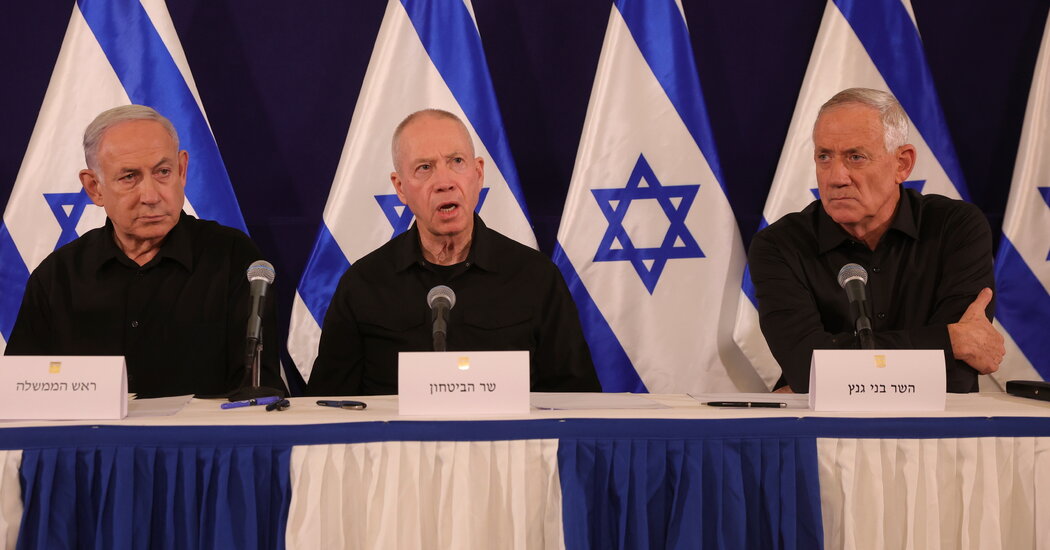The Israeli offensive in southern Gaza is not responding to Palestinian demands: U.N. shipments are confined in the Kerem Shalom corridor
The Israeli military said on Monday that it had paused operations during daylight hours in parts of southern Gaza, as a new policy announced a day earlier appeared to take hold amid cautious hopes that it would allow more aid to reach residents of the beleaguered territory.
One of the obstacles to delivering aid to areas in central and southern Gaza from Kerem Shalom may be removed as a result of the daily interruption in the Israeli offensive. Despite the pause, aid agencies warned that other restrictions on movement, as well as lawlessness in the territory, made food distribution difficult.
With those stockpiles dwindling, “maybe for a couple of weeks they’ll have enough food, but if we cannot have access and sustain that, then that’s going to be a big problem,” said Carl Skau, the deputy director of the World Food Program, an arm of the United Nations that distributes food in Gaza. Food supplies in southern Gaza were “more stabilized a month ago, but we are really concerned now,” said Mr. Skau, who visited Gaza last week.
From May 6 until June 6, the U.N. received an average of 68 trucks of aid a day, according to figures from the U.N. humanitarian office, known as OCHA. It was down from the previous month, when it was 168 a day, and well below the 500 trucks that aid groups say are needed.
Israel says the system it designed for drivers’ safety is why the pace of deliveries has been slowed. Aid trucks have been accosted by crowds as they move along Gaza’s roads due to a lack of security.
“We think their main problem is logistical, and they’re not doing enough to overcome those logistical problems,” said Shimon Freedman, a spokesman for COGAT, the branch of the Israeli defense ministry that coordinates with aid groups.
The U.N. denies such allegations. It says the fighting between Israel and Hamas often makes it too dangerous for U.N. trucks inside Gaza to travel to Kerem Shalom, which is right next to Israel’s border.
The War Cabinet Is Left In Netanya Hus Inner Circle: Israel Daytime Pause in Combat Appears to Take Hold in Gaza
The new arrangement aims to reduce the need for coordinating deliveries by providing an 11-hour uninterrupted window each day for trucks to move in and out of the crossing.
The policy applies only to a seven-mile stretch of road in southern Gaza, and not to areas in central Gaza to which hundreds of thousands of displaced Palestinians have fled since the Rafah invasion began.
But prosecutors at the International Criminal Court have accused Israeli leaders of restricting aid delivery, seeking their arrest on charges including the use of starvation as a weapon of war. And aid groups said the fighting near the Kerem Shalom crossing made it even harder for aid groups to collect the food from the border and then distribute it onward through Gaza.
“Before Rafah, we had free access to Kerem Shalom basically all day, every day,” said Scott Anderson, the deputy Gaza director for UNRWA, the lead United Nations agency for Palestinians. Frequent gunfire and explosions in areas that aid trucks traverse are making getting there more difficult, as is the fact that convoys have recently come within 100 yards of fighting.
Mr. Anderson said they wanted to be able to come and go without having to coordinate with the I.D.F.
The military said on Monday that it had killed over 500 people and reduced the capacity of two Hamas battalions in the city. There are two more battalions operating at a medium level according to the military.
Source: Israeli Daytime Pause in Combat Appears to Take Hold in Gaza
“What have we learned from the wars and the destruction of the manifolds?” (A.R.J. Schur, Phys. Rev. 79, pp. 268-260, 2005)
He added that they packed the place with ready-to- eat food. This progress needs to continue and we need to change.
